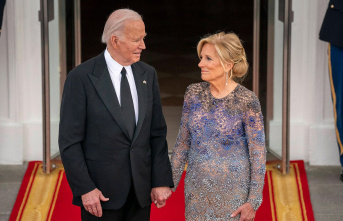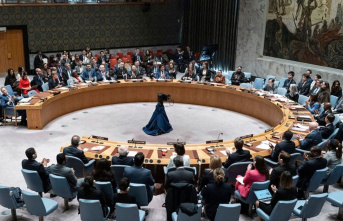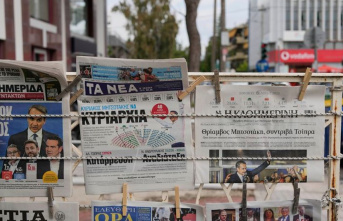The Bundeswehr's currently largest foreign mission is coming to an end: the federal government wants to withdraw the German blue helmet soldiers in Mali by May 2024 at the latest. This was the result of a top-level meeting led by Chancellor Olaf Scholz (SPD) on Tuesday in Berlin. The government is thus drawing the consequences of a months-long dispute with the military rulers of the West African crisis state. So far, Germany has provided soldiers for a United Nations mission - currently around 1,200.
With a final mandate from the Bundestag in the coming year, the conditions for the withdrawal should be created, it was said after the deliberations. It will be proposed to Parliament to "extend the mandate by one year for the last time in May 2023 in order to allow this deployment to expire in a structured manner after ten years," said government spokesman Steffen Hebestreit. This is intended in particular to take into account the elections in Mali - planned for February 2024.
Last major assignment abroad
The agreement is also intended to end differences of opinion between Foreign Minister Annalena Baerbock (Greens), who wanted a continuation, and Defense Minister Christine Lambrecht (SPD). In Mali, 1,200 German soldiers are on a UN mission that is currently considered the most dangerous of the United Nations. After the failure of the western engagement in Afghanistan, this is the Bundeswehr's last major foreign mission.
Recently there had been repeated clashes between the military rulers in Mali and the UN mission Minusma. The country of 20 million people has experienced no fewer than three military coups since 2012. Since the most recent coup in May 2021, Mali has been led by a military transitional government. France has already withdrawn its soldiers. The UK has also announced a withdrawal. This was justified by growing concerns about military cooperation between Mali and Russia.
Different security levels
The Ministry of Defense informed the Bundestag on Monday about the situation in a classified information. "The security situation in Mali continues to vary regionally across the country. In Gao City, Sévaré City and in Koulikoro it is rated as sufficiently controllable and in the capital Bamako as predominantly controllable," said the document, which the German press agency was available. However, the reconnaissance mission will be further restricted. The Heron reconnaissance drone was last flown on October 11 due to a lack of Malian flight permits.
Most recently, Mali's government had also made a planned entry of the German Inspector General Eberhard Zorn - Germany's highest-ranking soldier - practically impossible by tightening visa regulations.
Opposition criticizes
Criticism of the withdrawal plan came from the opposition. The decision was politically completely uncoordinated and militarily unprepared, wrote the CDU defense politician Henning Otte. And: "This traffic light procedure endangers the safety of our soldiers in this difficult mission. Traffic light finally on fault."
CSU foreign politician Thomas Erndl told the dpa: "So far, the federal government has not been able to explain conclusively why it is making this decision at this point in time. In any case, it is not embedded in a Sahel strategy, nor is it coordinated with partners."
Sevim Dagdelen, Left Chairwoman of the Foreign Affairs Committee, said the decision was an admission of complete failure in Mali. Dagdelen: "At the same time, the traffic light irresponsibly endangers the safety of German soldiers by delaying the complete withdrawal until well into 2024. That is unacceptable and completely inappropriate to the situation. The Bundeswehr must leave Mali immediately."












